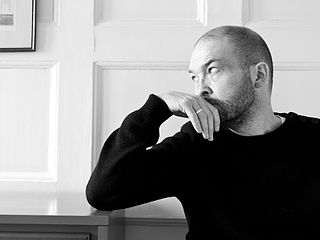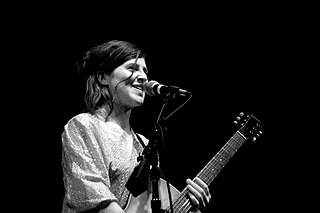A Quote by Ben Watt
I personally feel that there's a lot of music journalism that is dominated by genre, because you need a language in which to write, but actually the things that strike people about music, are very hard to write about, and its sonic connections, it's a sense of harmony that I think we all have even if we don't know how to express it - it's something musical, it's synapse connections in our brain.
Related Quotes
I believe that the greatest music is storytelling anyway, in a heightened medium. So I write a lot of music, and I play a lot with my guitar, I still sing a lot, but now I'm more personal about it than public, in a way. I think there will be a time where I'd like to bring the singing back into some of my performances. It all depends if the material's right, if the story's right, if it's my kind of taste in music, as well. It means so much to me. We all know how affective music can be, I just want to make sure when I do it, I'm doing it because I actually feel it and I care about it.
I think the genre of musical theatre, when it started, the pop songwriters of the time were writing the music. I think sometimes when we write musicals now, we keep writing in that same style, as though that's the musical theatre genre... We have to figure out how to tell stories with the music that we listen to now, or we'll lose our audience.
Our whole mission is about breaking the rules. Cibo Matto doesn't fit into any one genre and when people ask about what kind of genre is it, it's hard to say. We try to do a lot of stuff. People like to categorize, basically. So we always have trouble giving an answer. Pop music has a lot of different elements of music. Even polka too.
I know that a lot of songwriters write about a break up. It's a really popular topic. I think heartbreak is the number one thing people write about. I could say that's narcissistic somehow because they want everybody to admire how pained they are. But I actually do think there's something beautiful and uplifting about knowing that you're not the only one who is experiencing or has experienced that kind of devastating loss. Everyone's experienced that.
I want my music to be something that people use in order to access parts of themselves. So in that sense, every piece I write is about all emotions at once, about the lines in between. It's never only about one thing or another. It's emotionally getting at those things that we can't really describe - things for which we don't have labels. So yes, it's about something, and it has a use. It's neither about nothing nor about something concrete - it's about what you bring to it as a listener.
I write about the power of trying, because I want to be okay with failing. I write about generosity because I battle selfishness. I write about joy because I know sorrow. I write about faith because I almost lost mine, and I know what it is to be broken and in need of redemption. I write about gratitude because I am thankful - for all of it.
I think there's a huge parallel that affects my musical taste, and connections that have to do with my ethnic diversity and my musical tastes and the diversity of that. And it's interesting that, growing up on the circuit, it posed such a challenge, not only to me deciding what my identity was amongst my peers, but then on the music side, it was like trying to explain or convince people especially in the music industry that there was a place for what I was trying to do. But at the same time, I think it has a lot to do with timing and even me, like, understanding it.
I'm always very careful to make the distinction between music criticism and music journalism. A lot of people don't. But criticism doesn't require reporting. You can write criticism at home in your underwear. On the other hand, journalism takes legwork - you have to get out there and see things and talk to people.
Beyond that, it gets down to the nuts and bolts of discipline - not a tradition or genre, I don't care about that, actually - but discipline in the sense of just working on music and working on thinking about music. It doesn't matter if it's jazz or not. It's about how we listen, how we interact, how we guide our attention when we're listening, and how we can refine what we're doing musically.




































